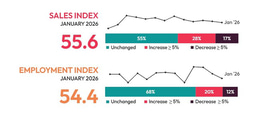The Impact of Virtual Mentors and Online Coaching

Technological developments have revolutionized the traditional model of coaching, bringing about a new era of virtual mentoring. The use of advanced software and equipment has transformed the dynamics of mentoring, expanded global outreach, and introduced new interactive tools.
Tech Impact: Redefining the Mentoring Experience
The use of online coaching platforms has greatly impacted the way mentors connect with their mentees. Video conferencing, virtual reality (VR), and artificial intelligence (AI) form the basis of the virtual mentorship experience. Video conferencing enables real-time face-to-face interaction, overcoming geographical barriers and enhancing direct communication. VR facilitates interactive coaching by immersing mentees in learning scenarios with no inherent risks. AI, with its data-based knowledge, personalizes coaching efforts for each individual by interpreting large sets of information and identifying specific training regimes.
Global Reach: Breaking Spatial Boundaries
One of the key benefits of virtual mentoring is its ability to overcome spatial limitations. Technology has connected people worldwide, enabling mentors to reach their mentees through webinars, online classes, and virtual collaboration tools. This democratization of knowledge ensures that everyone, regardless of their location, has access to opportunities and mentorship. Additionally, online coaching is convenient for individuals in isolated or underserviced areas, where traditional mentoring options may be limited.
Personalization of Coaching: Tailoring the Experience
Through technology, personalized mentoring has become a reality by addressing the specific needs and characteristics of mentees. Data analytics and AI provide valuable insights into mentees' success, likes, preferences, and challenges, allowing mentors to design individualized action plans. Online evaluation tools further aid in assessing mentees' strengths and weaknesses, leading to a tailored coaching model that adapts to their growing demands.
Interactive Tools: Enhancing the Learning Experience
An essential component of virtual mentorship is the use of interactive tools that promote active participation and skill enhancement. Collaborative platforms, gamification aspects, virtual whiteboards, and quizzes are among the various technological advances that spice up the learning experience and cater to diverse learning styles.
Future Trends: What Lies Ahead
As technology continues to advance, future trends in virtual mentorship are expected to include augmented reality (AR), blockchain technology for secure transactions and certifications, and emotional intelligence AI for more sensitive mentorship interactions. These trends will shape the future of e-coaching and push beyond current technological capabilities as the world enters the digital era.
Final Thoughts: A New Wave of Digital Coaching
Virtual mentoring is flexible, convenient, and individualized. Through the incorporation of VR, AI, and video conferencing, online coaching provides immersive and personalized experiences for mentees. It transcends geographical limits and offers prospects for people across the world, ensuring high-impact mentorship through individualized learning processes.
Summary
In summary, virtual mentors have redefined the coaching landscape, offering a scalable, efficient, and tailored approach to mentoring through the use of cutting-edge technology. As advancements in virtual mentorship continue, the future holds even more innovative and transformative possibilities.






Please sign in or register for FREE
If you are a registered user on AVIXA Xchange, please sign in